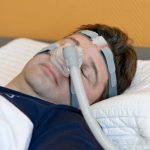
Universal gym etiquette includes steps like turning off your cellphone whenever you’re working out, being courteous when using shared equipment in the weight room, taking thoughtful steps such as not wearing heavy perfume, and wiping off your sweat after working out on a machine. But there are also good rules to follow whenever you walk into an exercise class. Adhering to them can improve your performance as well as your standing at the health club and your all-important relationship with your fitness instructors. First, use the minutes when you’re getting dressed for class to focus mentally. Get psyched for a serious workout and remind yourself that fitness boosts your motivation and enthusiasm. Being on time benefits everyone. Lateness is more than distracting to your instructor and classmates. You miss out on the important warmup segment, warns the American Council on Exercise, and that puts you at greater risk for injury. If you’re late for a personal trainer session, it throws off the rest of your trainer’s schedule and means less time for you. On the other hand, don’t be shy about asking questions that will help you improve and possibly avoid an injury. Don’t grin and bear it if a move hurts or if you’re unsure of how to do it. If you can’t get the attention of the teacher during class, bring up your… read on >


















